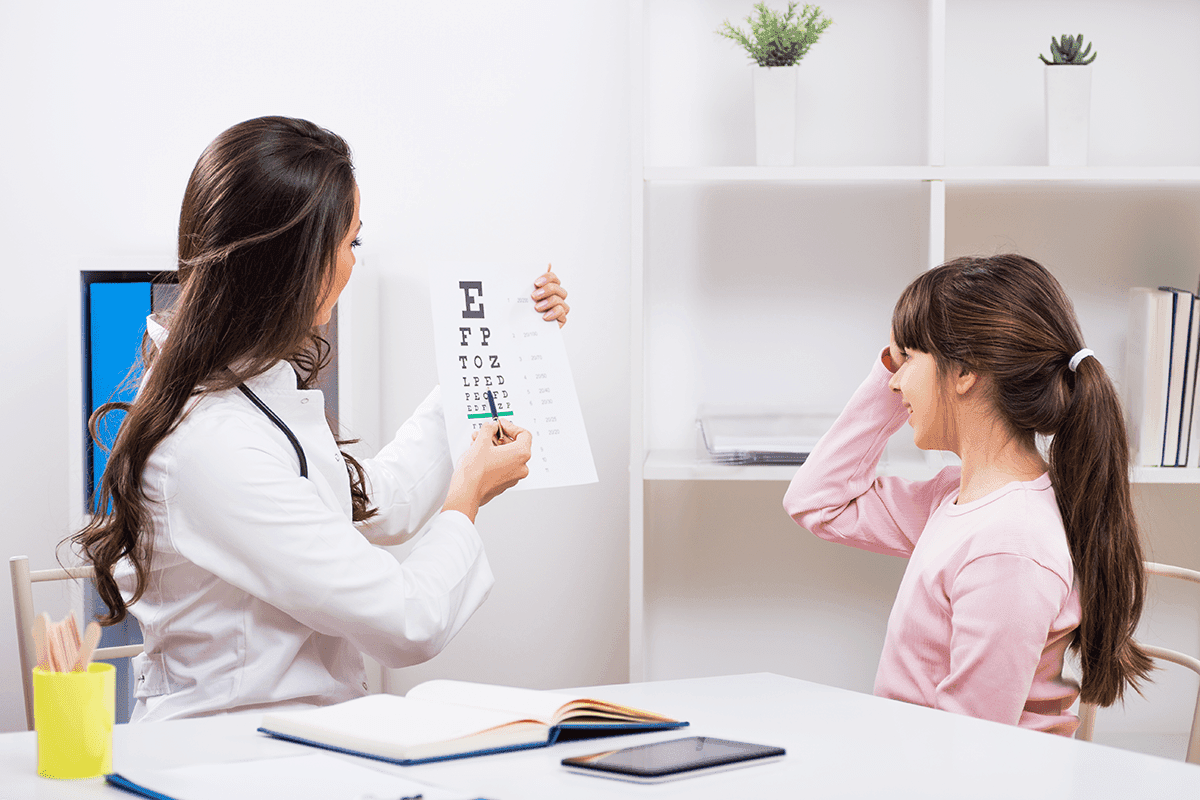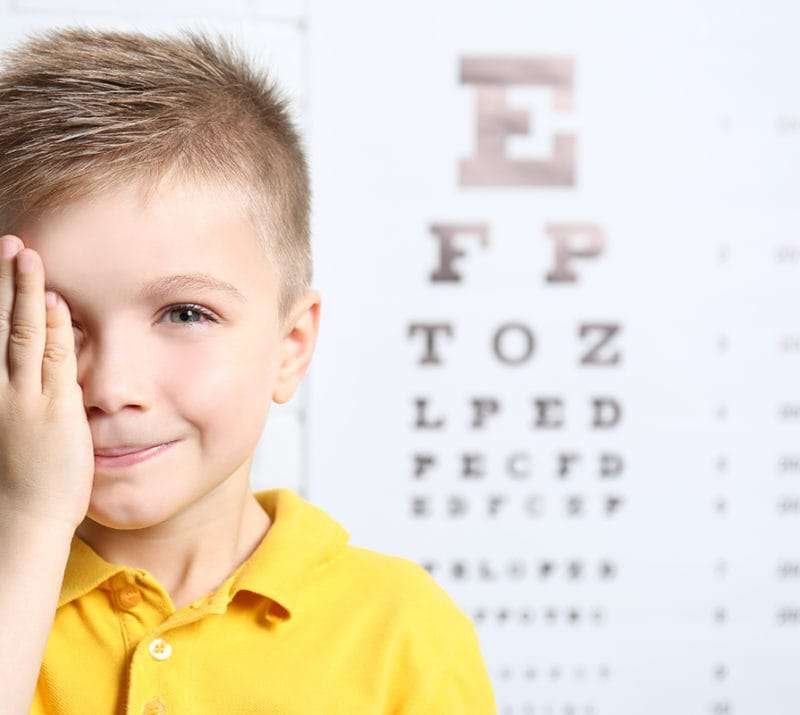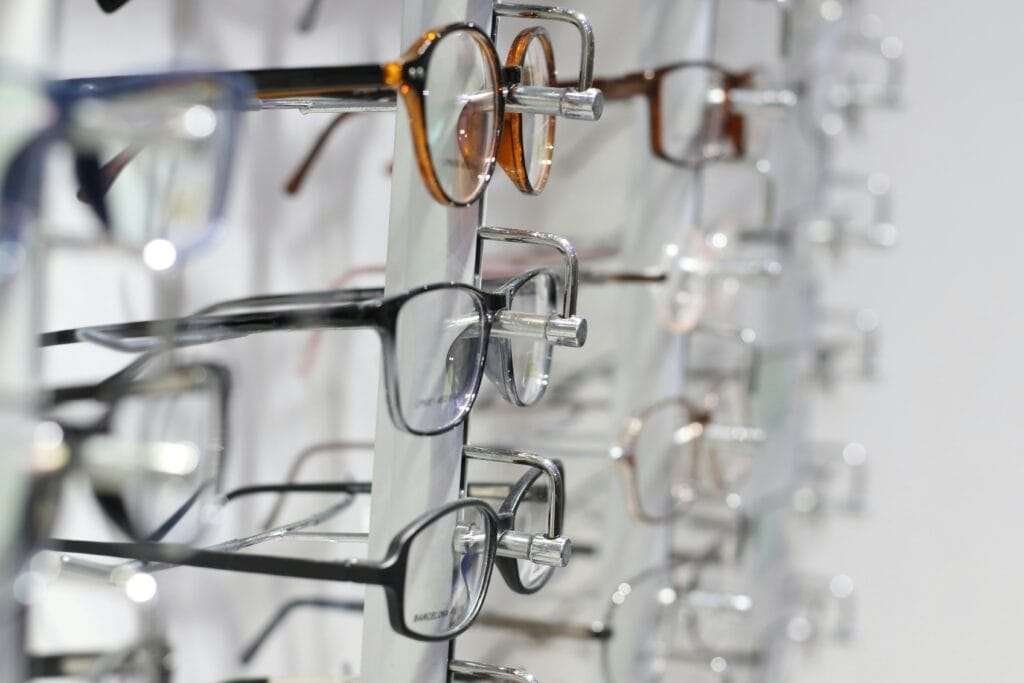Prescription Glasses

Prescription Glasses: A Complete Guide for Eye Care Patients
At our eye care center, we understand the importance of clear vision in your everyday life. Prescription glasses are one of the most common and effective ways to correct vision problems, ensuring you see the world with clarity. Whether you’re nearsighted, farsighted, or have astigmatism, our optometrists are here to guide you through the process of selecting the right glasses for your specific needs.
What Are Prescription Glasses?

Prescription glasses are specially made lenses that correct refractive errors in your eyes, helping you see more clearly. The lenses are tailored to your unique vision needs, based on a comprehensive eye exam performed by our experienced optometrists. These glasses work by bending (refracting) light rays to focus them correctly onto your retina, where vision is processed.
Why You Might Need Prescription Glasses
There are several common vision problems that prescription glasses can correct:
- Nearsightedness (Myopia): If you have trouble seeing objects at a distance, but close-up vision is clear, you may need glasses for nearsightedness. This condition occurs when the eye is too long or the cornea is too curved, causing distant objects to appear blurry.
- Farsightedness (Hyperopia): If close-up objects appear blurry while distant objects are clear, you may be farsighted. This happens when the eye is too short or the cornea is too flat, leading to difficulty focusing on nearby tasks like reading.
- Astigmatism: Astigmatism causes blurred or distorted vision at all distances due to an irregularly shaped cornea or lens. Prescription glasses can correct this issue, providing clearer vision.
- Presbyopia: As we age, the lens of the eye becomes less flexible, making it harder to focus on close objects. This is a natural part of aging, often requiring the use of reading glasses or multifocal lenses.
How We Determine Your Prescription

Your prescription is determined through a comprehensive eye exam. During the exam, our optometrist will use several tests to assess your vision and measure the degree of refractive error in your eyes.
Here’s what you can expect:
- Visual Acuity Test: This is the familiar eye chart test where you read letters from a distance. It helps determine how well you can see at various distances and if you need corrective lenses.
- Refraction Test: We use a phoropter, a machine with multiple lenses, to determine which lens provides the clearest vision for you. The optometrist will ask you to compare different lenses (“Which is better: lens 1 or lens 2?”) to fine-tune your prescription.
- Lens Power Measurement: Your prescription will include measurements for sphere, cylinder, and axis, which describe the strength and curvature of the lenses needed to correct your vision. If you need reading glasses, add power will be included to help with close-up vision.
Types of Lenses We Offer
At our center, we offer a wide range of lenses to suit your lifestyle and vision needs:
- Single Vision Lenses: These lenses have one prescription across the entire surface and are used for correcting nearsightedness, farsightedness, or astigmatism. They are ideal if you need glasses primarily for distance or near work.
- Bifocal Lenses: These lenses have two distinct areas—one for distance vision and one for reading. They are commonly used for patients with presbyopia who need help with both close-up and far-away tasks.
- Progressive Lenses: Also known as multifocal lenses, these lenses provide a seamless transition between near, intermediate, and distance vision. Unlike bifocals, there is no visible line on the lens, offering a more natural look and smooth vision correction at all distances.
- Blue Light Lenses: For those who spend long hours in front of digital screens, we offer blue light filtering lenses. These lenses reduce eye strain and discomfort caused by blue light emitted from computers, smartphones, and tablets.
- Photochromic (Transition) Lenses: These lenses darken when exposed to sunlight and return to clear indoors. They provide convenience by eliminating the need for separate sunglasses, protecting your eyes from harmful UV rays.
Frame Selection

Choosing the right frame is just as important as selecting the right lenses. Our center offers a wide variety of stylish and comfortable frames that fit your personal style and budget. Our team will help you find the perfect frame that not only complements your look but also fits well on your face for all-day comfort.
Things to consider when choosing your frames:
- Face Shape: Certain frame shapes enhance your features. For example, square or angular frames may suit round faces, while round or oval frames complement angular faces.
- Frame Material: We offer a variety of materials, including lightweight plastic, durable metal, and flexible titanium. Each has its own benefits in terms of comfort and durability.
- Lifestyle Needs: Whether you need glasses for work, reading, sports, or daily wear, we can recommend frames that match your lifestyle. For example, if you’re active, you might prefer frames made from impact-resistant materials.
How to Care for Your Prescription Glasses
Taking care of your glasses is essential to ensure they last long and provide clear vision. Here are some tips:
- Clean Regularly: Use a microfiber cloth and lens cleaner to keep your glasses free from smudges and dirt. Avoid using tissues or paper towels, as they can scratch the lenses.
- Store Properly: Always store your glasses in a hard case when not in use to protect them from damage.
- Handle with Care: Hold your glasses by the frames, not the lenses, to avoid smudging or scratching them.
When Should You Update Your Prescription?
It’s important to have regular eye exams, as your vision can change over time. If you experience any of the following, it might be time to update your prescription:
- Frequent headaches or eye strain
- Difficulty seeing clearly at any distance
- Squinting or straining to see
- Blurred vision
We recommend scheduling an eye exam every one to two years to keep your prescription up to date and ensure your glasses are providing optimal vision correction.
At our eye care service center, we are committed to providing personalized, high-quality care for all your prescription glasses needs. Whether you’re choosing your first pair of glasses or updating an existing prescription, our experienced optometrists and staff are here to guide you through every step of the process. Visit us today for a comprehensive eye exam and find the perfect glasses to suit your vision and lifestyle!





